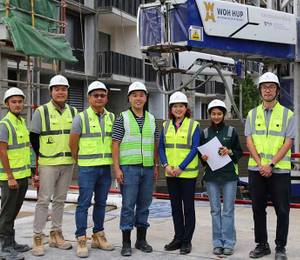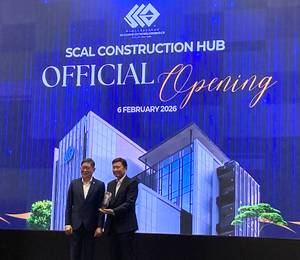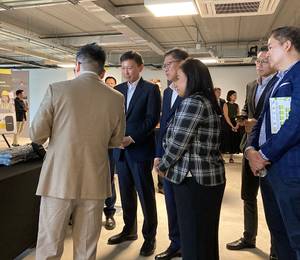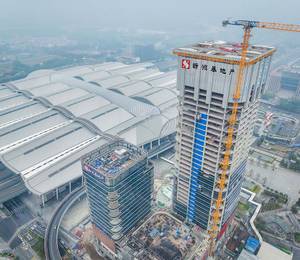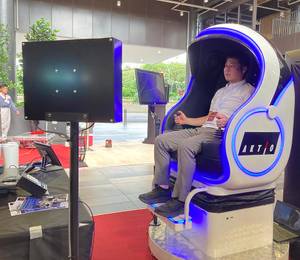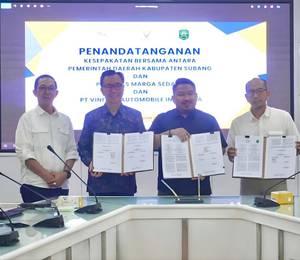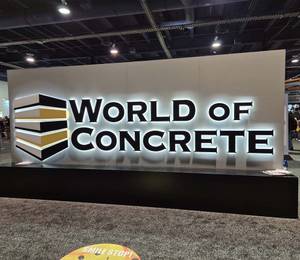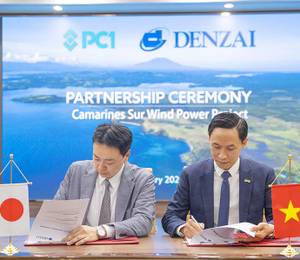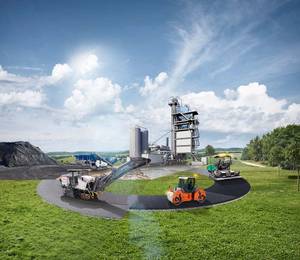Pan-United, Surbana Jurong, Chevron and Keppel Data Centres, with the support of the National Research Foundation, have signed a Memorandum of Understanding (MOU) to jointly develop the first end-to-end decarbonisation process in Singapore. This collaboration aims to accelerate the development of a highly integrated clean and energy efficient Carbon Capture, Utilisation & Sequestration (CCUS) system, which can lead to a low-carbon economy and potential commercial developments for the country.
Carbon emissions make up 97% of Singapore’s total greenhouse gas emissions. Under the Paris Agreement, Singapore has pledged to, by 2030, reduce its emissions intensity by 36% from 2005 levels, and to stabilise its emissions and peak around 2030. The Singapore Government has announced its long-term strategy to halve emissions from its 2030 peak and achieve net-zero emissions as soon as viable. To this end, the partnership will develop CCUS technologies that are readily applicable, with high technical readiness and cost efficiency to implement in Singapore’s key industries such as construction, energy and chemicals.
Prof Low Teck Seng, CEO of Singapore’s National Research Foundation (NRF) explained, “Investing in low-carbon R&D to drive cost-effective solutions is crucial for Singapore in our journey towards a low-emission economy. While Singapore, like the world, is still dependent on fossil fuels for our energy needs, technologies that enable efficient CCUS would help mitigate our emissions greatly. CCUS also presents opportunities for converting carbon dioxide into novel chemicals, materials and fuels, offering potential in growing new industries. This MOU demonstrates commitment from both industry and researchers to co-develop innovative solutions to achieve Singapore's long-term carbon goals of net-zero emissions.”
Under the MOU, Pan-United, Surbana Jurong, Chevron and Keppel Data Centres will jointly explore, identify and develop mature carbon capture technologies, coupled with novel technologies that utilise cryogens, membranes and hydrogen. The four companies will also leverage the combined resources, knowledge and capabilities with other research partners, Institutes of Higher Learning and international partners to advance the development of the CCUS technologies.
When commercially viable, the CCUS technologies are expected to help reduce carbon intensity across the industry sectors and help Singapore halve emissions from its peak to 33MtCO2e by 2050, with a view to achieving net-zero emissions as soon as viable in the second half of the century.
“Multi-industry collaboration is a key strategy to innovate commercially viable clean technologies that can decarbonise the built environment, “said May Ng, CEO of Pan-United Corporation Ltd. “I am confident that Pan-United’s industry-leading research and development of specialised ready-mix concrete technologies can contribute to this landmark collaboration to combat the adverse effects of climate change. Pan-United is fully focussed on creating concrete solutions in embodied carbon reduction technologies to advance Singapore’s sustainability ambitions.”
Wong Heang Fine, group CEO of Surbana Jurong commented, “As a multidisciplinary urban and infrastructure design consultancy, Surbana Jurong is providing step change solutions for sustainability across the project lifecycle. We are actively engaged in R&D to facilitate decarbonisation, focusing on delivering technologies that reduce and eliminate emissions as well as solutions that remove and sequester carbon from the atmosphere. Together with our partners, we are excited about exploring new solutions in carbon capture, use and storage that can scale and be commercially deployed to help us get to a net-zero future.”
Law Tat Win, Chevron’s Singapore country chairman added, “Chevron shares the society’s concerns about climate change. We are committed to advancing technologies and forming strategic partnerships in our efforts to deliver reliable, and ever cleaner energy. I am excited that Chevron will be working with like-minded partners in Singapore to progress polymeric membrane research for carbon capture solutions across various applications and industries.”
Thomas Pang, CEO of Keppel Telecommunications & Transportation, the parent company of Keppel Data Centres, also shared the role of Keppel through this latest agreement. “Keppel is committed to sustainable development and combatting climate change. This MOU augments the different efforts that the group has taken to reduce the carbon footprint of data centre operations, including exploring floating data centres as well as LNG and hydrogen infrastructure for power generation,” he said Mr. “The CCUS technologies are scalable and can potentially be implemented in Keppel Data Centre’s local and overseas operations, as well as other parts of the Keppel Group, thus contributing to the circular economy and advancing climate action.”
Image: Surbana Jurong

